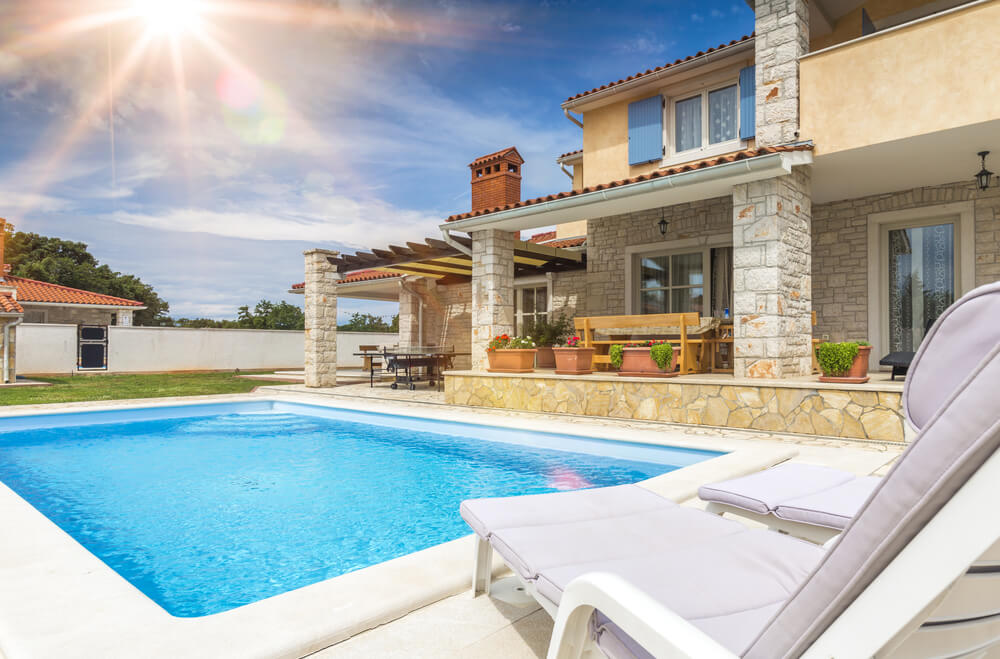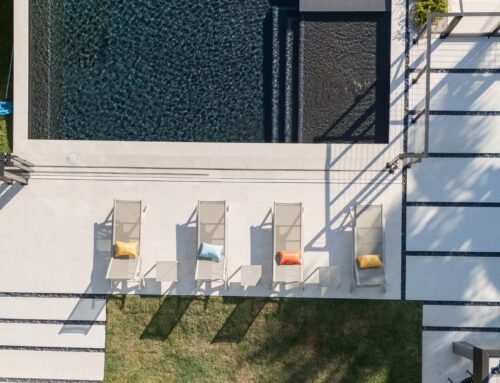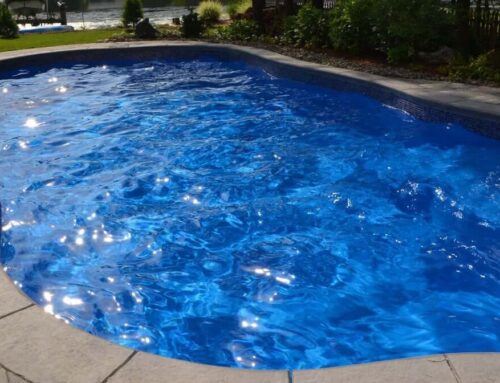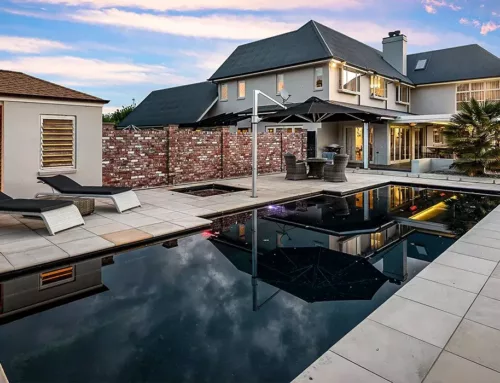A big part of your decision to add a swimming pool to your home is weighing the expense against its expected value. To do that, you’ll need to know how much value (if any) a pool provides for your particular home. And, you’ll need to know under what circumstances you can maximize that value.
There are many factors that influence the value that a pool adds to your home. In this article, we’ll go over some things you need to take into account when deciding on one. You’ll learn what are the variables at play and how much you should expect to spend for a pool installation.
The Expenses
First, let’s go over what a pool will cost you. There are the obvious upfront costs of installation, which will vary based on the size of the pool, the shape, and the materials you want to use. The average pool size is around 14 feet by 28 feet. That’s around 400 square feet and the price of a concrete pool that size is in the vicinity of 30-50 thousand dollars for an inground pool.
If you want to reduce that considerably, you could choose an above-ground pool. But those aren’t typically a permanent feature of your home and won’t really add much in terms of actual value for a buyer. A good rule of thumb is to aim to pay no more than 15-20% of the cost of your home for a pool.
Additional Expenses
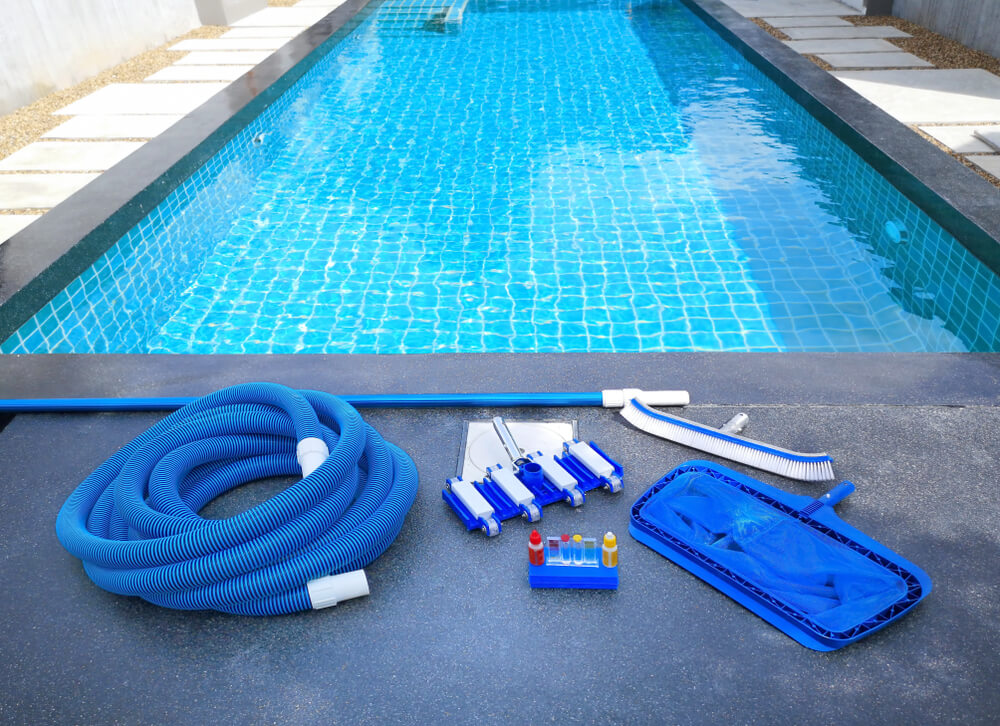
Now, that’s a significant upfront cost, but it doesn’t end there. Once you’ve installed, equipped, and filled the pool, you’ll also have ongoing costs. The filtering pump could add as much as $100 to your utility bill, depending on your area and how much you run it. Additionally, you’ll need to pay for chemicals and treatments for the water which will set you back between $300 and $800 a year. If you’re planning on heating your pool, that will be yet another expense. Gas heating is the most affordable option in that regard. The exact cost is difficult to estimate since they’re a function of how the weather behaves in your area. Vacuuming the pool floors and cleaning the walls is also a duty. You can do it yourself, in which case, you’ll only need to invest in a simple pool vacuum kit or a robot vacuum that can run as high as $500. Or, you can choose to hire a pool maintenance service, which will be a smaller upfront cost, but accrue over time.
And, last but not least, the pool may lead to increased insurance costs. You’ll need to check your insurance policy to make sure it includes swimming pool coverage. The good news is that adding extra liability insurance is usually pretty inexpensive. However, you may have to fence in your pool if children will be allowed near or in it. Depending on your property’s jurisdiction, a pool could even increase your property taxes.
The Rewards
So that’s what a pool costs. Now, it’s time to see exactly what you’ll be getting for that money.
First of all, you’ll get the enjoyment of having a pool in your backyard. For many people, that’s reason enough to make the investment, full stop. The intangible benefit of having year-round access to a pool is certainly on the list, but it won’t be the same for everyone. But, you’re probably reading this to find out if there’s a more tangible benefit to be gained from a swimming pool installation.
Generally speaking, buyers consider a swimming pool a value add when buying a home. But, that’s not true for all buyers. According to the experts, a swimming pool can increase the value of your home by about 7%. For a $220,000 home, that works out to around $15,000. So, you probably won’t recoup the entire price of installing the pool, but you can make back a significant portion. If a buyer is keen on owning a home with a pool, it will also make your home easier to sell. However, some buyers see pools as a liability.
Do Swimming Pools Add Value to Your Home?
So, is it worth it to install a pool or not? The answer is: it depends. Under some circumstances, not having a pool could considerably impact your property value. For instance, if you’re in a neighborhood where most of the houses have pools, not having one makes your property less valuable in comparison. You’ll also have an easier time enticing buyers with a pool in certain areas of the country. In places such as Florida, where you can enjoy the pool all year, it’s a major bonus for homebuyers. If you end up deciding to install a pool, it’s a good idea to ask the pool installation company for advice. A pool that fits in well with your property and the surrounding area adds far more value than one that clashes with the landscape.
There are also some things that could seriously hurt the value that a pool adds to your property. If the pool takes up your entire yard, it’s hardly attractive. Even people who love pools usually don’t want them to occupy every inch of the yard. Also, you should make every effort to keep your pool well maintained and clean. Cracking along the walls, algal growth, and general dilapidation massively impacts the value of your pool. In fact, it could end up making the pool an eyesore rather than a luxury.

In Summation
Before you jump on Google and start typing “pool companies near me,” it’s worth going over all the information above.
Do swimming pools add value to your home? Yes, they do, under the right circumstances. The basic checklist for whether or not a pool is worth the cost starts with your location. If you’re in a state like Florida or Hawaii, a pool is definitely worth the investment. You can enjoy it year-round and it’s attractive to most buyers. If most of the homes in your neighborhood have pools, you should definitely consider installing one. Not having it could make your home more difficult to sell. If you have a big lot that has room for a pool and some extra space, that’s a good sign. If you have to sacrifice your entire back yard for a pool, consider it carefully.
Having said all that, the ultimate decision will really come down to your feelings about pools.
Investing in a pool is as much about increasing property value as it is about investing in a lifestyle. It’s impossible to put a price on summer days spent poolside in your backyard and pool parties with your friends. For people who want to be able to enjoy a pool in the privacy of their own home, it’s more than worth the investment.
A Value Worth Adding
As you can see, a pool can add significant value both in the form of economic returns and in the form of enjoyment. A pool could very well make your property more attractive to buyers in some cases. The right locations, type of pool, and neighborhood all contribute to a swimming pool’s added value. When you’re ready to invest in a pool for your home, working with a reliable and trusted pool company will make sure you don’t overpay or get something you don’t want or need. Florida Pool and Patio have been serving the Miami area for over two decades. Call us today and we’ll help you choose a pool for your home that adds value and looks great.

